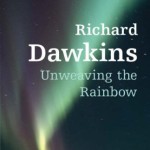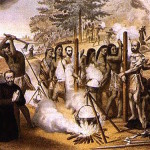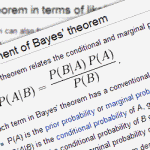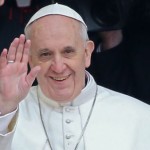“The Language of God”
by Stephen M. Barr
Filed under Book Reviews
The Language of God: A Scientist Presents Evidence for Belief
by Francis S. Collins
Free Press, 304 pages, $26
"Today we are learning the language in which God created life." With these words, President Clinton announced one of the great feats of modern science, the mapping of the human genome. Standing next to him in the East Room of the White House was the leader of the Human Genome Project, Francis S. Collins.
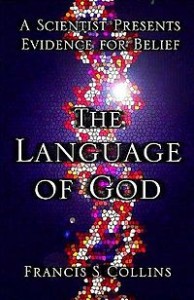 Collins has now written a book, The Language of God, but it is not the sort of book one might have expected him to write, for only a small part is devoted to the genome project. Rather, Collins has written the story of his other great discovery: the discovery not of new truths but of old truths. It is the story of how and why he came to believe in God.
Collins has now written a book, The Language of God, but it is not the sort of book one might have expected him to write, for only a small part is devoted to the genome project. Rather, Collins has written the story of his other great discovery: the discovery not of new truths but of old truths. It is the story of how and why he came to believe in God.
As such, this book is almost unique. There are many conversion stories and many scientific autobiographies, but few books in which prominent scientists tell how they came to faith. If nothing else, Collins' book gives the lie, in most spectacular fashion, to the claim made by Richard Dawkins in an interview not long ago: "You won't find any intelligent person who feels the need for the supernatural," Dawkins declared, "unless [he was] brought up that way."
Francis Collins was not brought up that way; his family's view was that religion "just wasn't very important." Almost the only contact Collins had with religion as a child was singing in the choir at the local Episcopal church, where his parents had sent him to learn music with the admonition that he shouldn't take the theology too seriously. After discovering, in high-school science classes, "the intense satisfaction of the ordered nature of the universe," Collins entered the University of Virginia at the age of sixteen to major in chemistry. Up to then, he had given little thought to religion, though in his early teens he had had "occasional moments of . . . longing for something outside myself," most often associated with profound experiences of nature or of music. Exposed to the challenges of "one or two aggressive atheists" in his dorm, however, he quickly concluded that no religion had any "foundational truth."
The mathematical elegance of physics drew him into physical chemistry, where he was "immersed in quantum mechanics and second-order differential equations" and "gradually became convinced that everything in the universe could be explained on the basis of equations and physical principles." Discovering that Einstein, one of his heroes, had not believed in the God of the Jewish people, Collins concluded that "no thinking scientist" could take the idea of God seriously, and he "gradually shifted from agnosticism to atheism."
While working on his doctorate at Yale, Collins happened to take a course in biochemistry and was "astounded" by DNA and proteins "in all of their satisfying digital glory." It was a "revelation" to him that mathematics and "rigorous intellectual principles" could be applied to biology, a field he had previously disdained. Around this time, however, he began to wonder how he could "make a difference in the lives of real people" and whether he was cut out for a life of research. And so, just before completing his degree in chemistry, he switched to medical school.
It was in medical school that his atheism suffered a blow: "I found the relationships [I] developed with sick and dying patients almost overwhelming." The strength and solace so many of them derived from faith profoundly impressed him and left him thinking that "if faith was a psychological crutch . . . it must be a very powerful one." His "most awkward moment" came when an older woman, suffering from a severe and untreatable heart problem, asked him what he believed. "I felt my face flush as I stammered out the words 'I'm not really sure.'" Suddenly it was brought home to him that he had dismissed religion without ever really considering-or even knowing-the arguments in its favor. How could someone who prided himself on his scientific rationality do that? He was deeply shaken and felt impelled to carry out an honest and unprejudiced examination of religion. Attempts to read the sacred scriptures of various world religions left him baffled, however, so he sought out a local Methodist minister and asked him point-blank "whether faith made any logical sense." The minister took a book down from his shelf and handed it to him. It was C.S. Lewis' Mere Christianity.
Read the rest of the review.
Related Posts
Note: Our goal is to cultivate serious and respectful dialogue. While it's OK to disagree—even encouraged!—any snarky, offensive, or off-topic comments will be deleted. Before commenting please read the Commenting Rules and Tips. If you're having trouble commenting, read the Commenting Instructions.




